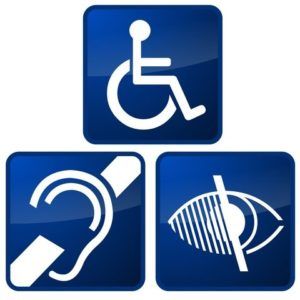Is Breathalyzer on the side of the road reliable??
- What kind of devices are out there?
- What is the accuracy of the handheld breath test?
- Is there a way to challenge the test?
- Are handheld tests admissible as evidence?
- Is the AlcoSensor reliable?
- 1710F
Handheld breath testing devices are used daily in North Carolina. Sometimes they are done correctly with a properly maintained AlcoSensor; sometimes no so much. It’s a mixed bag – Bill Powers
What is the Breathalyzer? Does it work? Is it admissible?
Sometimes people call the different breath testing devices a “Breathalyzer.” The idea behind the word itself is to “analyze” your “breath.”
The question is, “What does it analyze?”
Breath tests are meant to measure in some way the consumption of alcohol. You may understand there are different types of alcohol, some of which are safe to drink, some of which could kill you if you drink them.
The alcohol in things like beer, wine, and different liquors is called ethanol or ethyl alcohol. Relatively speaking, and comparing it to other types of alcohol, it’s safe to drink.
Other alcohols like methanol or isopropyl alcohol are used in common household and commercial applications. And although closely related to ethanol in chemical composition and molecular structure, they both can do serious damage to you if you drink them.
Breath testing devices or machines are designed to test for one type of alcohol: ethanol.
They are are designed to either ignore or rule out other types of substances, including other types of alcohols.
As is the case with any machine made by human hands, it is imperfect.
In North Carolina DWI cases, handheld or roadside breath testing is done with a device called an AlcoSensor.
There are different manufacturers out there, but for all intents-and-purposes, North Carolina law enforcement officers generally use one of two or there different handheld devices manufactured by a company known as Intoximeters.
And while they test for breath, they are not technically known as a Breathalyzer.
Indeed, the Breathalyzer was manufactured by a couple of companies, the primary one being Smith & Wesson. (Yes, that’s the gun company).
Technically an Alco-Sensor is a different type or device made by a different company that uses a different technology to test for the existence of alcohol.

Impaired Driving NCGS 20-138.1
LEARN MORE: How Is Court Scheduled in North Carolina?


Modified Transcript of “Is Breathalyzer on the side of the road reliable?” for the Hearing Impaired
Hey there, I’m Bill Powers.
Today, I’m going over some little handy-dandy little devices that we use in North Carolina in the prosecution of Driving While Impaired offenses.
Next to me is the old breathalyzer, it was a device made by, primarily, Smith & Wesson Company. This is the Breathalyzer 900A. I also have some of the other tools that we use roadside.
This is Alco-Sensor FST which is a handheld device and then we also have the Alco-Sensor, in this instance, it’s the Alco-Sensor 3 which is the three digit LED lighted electrical display.
These two device, and I want to compare and contrast them to the breathalyzer, because these two devices are used roadside. Now, I have clients come in all the time and they say, “I blew so and so in the breathalyzer.”
I’m like, “Time out. I need to know what you’re talking about.” Not to be difficult about that but there’s a tremendous difference between, even the old-fashioned one and the ones that we have downtown which are for evidentiary purposes versus the ones on the side of the road.
Approximately in 2006, we transitioned from allowing a numeric value to come in, when you blow and you get a reading, and what devices we’re going to use or approved devices in the state of North Carolina through the North Carolina Administrative Code.
Now, this device here, the Alco-Sensor is made by a company referred to as Intoximeters. They’re based in St. Louis, Missouri. This was one of the first devices approved for roadside testing.
This one happens to be an Alco-Sensor 3 because it’s got a three digit display. The original Alco-Sensor, which is referred to as an Alco-Sensor, has a two digit display. It uses an electro-chemical fuel cell.
It measures, they think, because it’s got an atomic level, they think it measures the amount of hydrogen coming out of your breath. If you want to more about this, I’ve got a three long PowerPoint presentations but some of the science of it involves the molecule of ethyl-alcohol or ethanol, carbon-hydrogen, hydroxide, there’s a lot of hydrogen around it.
Hydrogen gives off energy when it’s placed across or blown across a fuel cell plate and it gives a reading when it discharges its energy basically.
It basically works like a battery that makes electric current with the alcohol or ethyl-alcohol fumes from your breath. This is still an approved device.
This is a device that we could use in North Carolina and the officers will ask you some questions, “When you last had something to drink,” they’re supposed to make sure that you haven’t had something, relatively speaking, recently.
They have you take a deep breath and exhale, you’ll hear a clicking noise, they cock it and then when they’re taking a sample, they manually just hold the number down and they watch the number, in this instance, it would go up. In about 2005, 2006, when we changed the law and when the law went into effect, we actually added a newer device.
This was called the Alco-Sensor FST, Field Sobriety Test, field testing device.
This is now an approved device. You tend to see this particular device on the side of the road in North Carolina more than the older versions.
In 2005, ’06 like when we changed the law versus when it went into effect, we went from allowing the numerical reading to be admissible in court for determination of probable cause to arrest to not allowing that and only allowing the officer to testify that the reading was either positive or negative for alcohol.
Prior to the law changing, if you challenged probable cause in North Carolina, you challenge the officer’s legal ability of following the law to arrest you, the number came in. In 2006 when we changed the law, the number no longer comes in and we adopted a device that you can … It has a little screen here and you can click through and make the reading say either pos or a neg. By the way, it also gives a numerical reading.
That’s important and I think it’s relevant to consider the fact that when we changed the law allowing the number, we also approved the device that just doesn’t give a number. Unfortunately, there is an over reliance, at times, by these by law enforcement. Sorry my friends at law enforcement, love you but there can be an over reliance on them. That’s especially true if someone’s pulled over and the first thing they do is pop this particular device into your mouth.
They read a number and then thereafter, they want to start the investigation Driving While Impaired.
The whole point of the National Highway Transportation Safety Administration Testing Protocols, what we call NHTSA, the gold standard for testing, is to give a fair, consistent, quasi-scientific, unbiased series of tests to people to make a determination of whether they were appreciably impaired and that’s the language that we use in North Carolina.
NHTSA recommends that you do this as a conformational device as opposed to an over reliance on a number. I do see cases where, first thing they do, is pop this in your mouth and then we can talk about implicit bias all we want, that’s an explicit bias.
For the record, the number is not admissible in court either to show that you’re impaired, if you’re saying, “Well, judge, we didn’t get the breathalyzer or one downtown,” which is actually called ECIR2 now.
Once considered evidentiary level meaning that it has a scientific level of reliability, that the number itself is what is used, at least in part, that prosecutes you and potentially convict you Driving While Impaired.
These handheld devices are not. Personal opinion on these type of devices is that they’re stone tools in a surgical field and all the manufacturers says that they’re as reliable. They’re not in my mind.
They’re subject to things like residual mouth alcohol, they don’t have all the safeguards and protections of some of the bigger devices like a heated breath tube or a computer inside that reads and confirms that there’s an reading and things, in your lungs. It’s a neat little handy-dandy thing but it shouldn’t be used as a sole basis of probably cause.
In fact, it really should be done towards the end the DWI investigation, only to determine if there was alcohol in the system per the statute. There is a little bit of a wink-wink, nod-nod that goes on in court at times.
It’s frustrating as a defense lawyer because I know that they can set this device just to read a pos or a neg because I own one, obviously. That’s the standard that officers are supposed to use and they still use the readings and I see the reports every day.
Someday, I hope that we in the system, my friends on the prosecution side, my friends on the bench and my friends in law enforcement, will maybe get everybody just to go click positive or negative on this thing and use it as it was intended part of statute.
If you have more questions about these devices, if you would like me to come to your school, your workplace, if you’d like me to come to your office, if you’re a DA’s office or Defense Lawyers Association, if you’re judges, heck I’ll come.
We have law enforcement officers that teach at different academies, justice academies here in Charlotte and other parts of the state that will come with.
We’ll give you an unbiased, unvarnished opinion and explanation of how these devices work and how DWI laws are enforced in the state of North Carolina. I’m here to help.
I enjoy teaching, I enjoy educating people within and without the system as to how these devices work and if you want to give me a swing by in the office and take a look, love to see you.
Telephone number is 704-342-HELP. That’s 704-342-HELP. I’ll throw out a challenge here, if anyone has more of these particular devices, prove it.
We have a bunch of them here and I love showing them off and I admit, I’m a techy dork. Look forward to hearing from you, thanks for your time.

Criminal Defense Attorney Bill Powers
 Carolina Law Blog
Carolina Law Blog